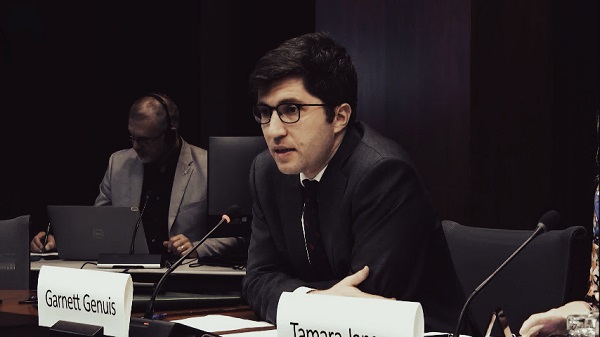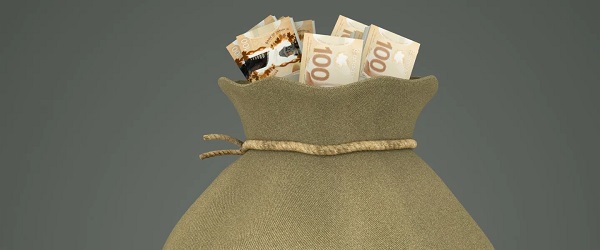National
Politically Connected Canadian Weed Sellers Push Back in B.C. Court, Seek Distance from Convicted Heroin Trafficker

Case sprawls from Pakistan’s chemical-precursor labs to Vancouver’s cannabis fields and law offices.
A high-stakes North American legal battle—centering on a politically connected Sikh-Canadian businessman at the collision point of Canada’s regulated cannabis sector and what U.S. authorities call a “multiyear, multinational attack” on American markets—and two estranged Vancouver brothers, one a convicted heroin trafficker and the other a cannabis cultivator alleging he was cut out of a Health Canada–licensed venture—has taken a turn in B.C. Supreme Court.
In one action, Emerald Health Sciences and related parties—including former British Columbia physician Avtar Singh Dhillon—have denied allegations by Krishansarup “Kris” Kallu, an estranged relative who says the company was structured to enrich insiders later charged by the U.S. government and to conceal key investors with deep narcotics ties that extend to chemical-precursor labs in Pakistan’s northern mountains—including his brother, Yadvinder “Yad” Kallu.
Dhillon—a British Columbia–educated physician and Sikh community leader now based in California—has long displayed deep political proximity in Canada; among the images circulating online is a photo of his niece with Prime Minister Justin Trudeau.
As Emerald Health stepped back from Dr. Dhillon—later drawn into an SEC case describing his role, along with West Vancouver lawyer Fred Sharp, in a one-billion-dollar stock-fraud network as a “multiyear, multinational attack” on American markets—his former Emerald partners filed a civil indemnity claim in September 2025 to create legal distance from Yadvinder Kallu.
In plain terms, the former executives deny the allegations against Emerald and argue that, if anything improper occurred—which they do not admit—legal responsibility must rest with Yadvinder Kallu alone.
Kris Kallu’s suit centers on the claim that his cousin Avtar Dhillon, Emerald Health Sciences, and Fred Sharp sit at the core of the network targeted by the United States government. He alleges that Sharp and Avtar Dhillon “are the true, direct or indirect controllers of Emerald Health Sciences,” and that “Sharp and [Avtar Dhillon] have been close business associates for many years.”
Kallu’s filings allege that individuals facing fraud charges in United States proceedings were among Emerald Health’s early investors.
They also state that Emerald Health Sciences had more than 200 shareholders on a confidential register maintained in Vancouver by the Canadian law firm Bennett Jones. The Bureau has previously reported on the firm’s ties to Liberal Party figures, and that former British Columbia premier Christy Clark has served as a senior adviser in the firm’s Vancouver office.
The Bureau’s reporting also included reviewing thousands of North American court filings and mapping financial networks tied to that legal share register—networks that span the Western Hemisphere and, through Yad Kallu’s historic narcotics activity, intersect with politically consequential narco-trafficking corridors in northern India and Pakistan.
Kris Kallu’s allegations are blunt: they suggest Emerald Health grew from a poisoned root—an effort to work around his brother Yad’s transnational trafficking history—while a polished corporate vehicle, including the Bennett Jones confidential share register, was built. He alleges that register ultimately benefited suspects tied to the Fred Sharp network.
In a revealing September 2021 email to another Dhillon family member—referring to news of U.S. government charges against the Fred Sharp network—Kallu wrote, according to his affidavit: “I find it very alarming as the key players that are being charged with fraud, money laundering, etc. are also invested in Emerald Health Sciences. I am curious how these investors were provided the opportunity to invest, given this is a private cannabis company and all investors were handpicked.”
According to Dhillon’s testimony in Boston as a cooperating witness, Sharp’s group would merge private companies run by hidden Vancouver investors into publicly traded companies, hire writers to fraudulently tout the companies in order to pump up prices, then sell shares to everyday investors—who were left holding deflated assets. Afterward, the conspirators laundered their proceeds. Key players got cash payments, part of a sprawling stock-fraud scheme allegedly tied to cannabis and biotech firms, shell entities, and a network of shadowy Western Hemisphere control groups.
During his testimony, Dhillon described one Vancouver exchange: “Once those shares were sold, I was in communication with (one of the Fred Sharp actors) about receiving some of the funds, and (the actor) offered and said, ‘Would you like to receive them in cash?’ And I said, ‘Certainly.’” Elaborating further, he said, “(The actor) personally delivered cash to me—usually at a restaurant.” When asked why he preferred cash, Dhillon was candid: “To hide it.”
Tracking further back in the B.C. Supreme Court record, Kris Kallu’s filings reach to Health Canada’s medical-marijuana program to explain how the business took root.
“In 2010, I completed an application form to obtain a designated growing licence,” his affidavit states, describing an effort to gain expertise ahead of regulatory changes. Because his brother Yad carried a trafficking conviction, Kris says the family devised a workaround: “As part of the application process, you had to pass a criminal background check. Yad had a criminal record for drug trafficking, so it was agreed that I would formally apply to become a designated grower for a patient who had a license for 99 plants.”
By 2013, he says, both Yad and their mother held sizeable medical-marijuana licences. He alleges that when Emerald Health was formed, he was told to route share-purchase funds through his mother’s bank account and later learned that some shares were allocated to David Nair, a co-defendant in Yad’s earlier criminal case. The criminal history cited by Kris Kallu relates to Yad Kallu’s involvement in a late-1990s joint DEA–RCMP probe ending with United States federal sentences after a California heroin deal.
B.C. Supreme Court findings describe a DEA operation that implicated Yad Kallu and Vancouver underworld figure Ranjit Singh Cheema, who was extradited to the United States for allegedly planning to import 200 kilograms of heroin and 4,000 kilograms of hashish from Pakistan. Cheema’s Canadian faction reportedly negotiated with Colombian cartels, bartering heroin for 800 kilograms of cocaine. Central to the probe was Mohammed Yusuf Khan, a former Pakistani military officer turned DEA asset, who facilitated the heroin transactions for Cheema’s network while working with RCMP liaisons.
The sting had deep U.S. intelligence roots.
According to a March 20, 1997 debrief by DEA Islamabad personnel—cited in Canadian court records—Mohammed Yusuf Khan told agents he had been approached by Mohamed Shafiq, a retired Pakistani army major and owner of Karam Associates, a chemical importer in Lahore. Khan said Shafiq “routinely diverts acetic anhydride to traffickers” operating in Pakistan’s Northwest Frontier Province—an essential precursor for heroin production—and that the pair were arranging a shipment of approximately 200 kilograms of Southwest Asia white heroin and up to four tons of hashish destined for North America.
Khan reported that Shafiq had already contacted a lab operator in northern Pakistan to stage the heroin for export. Initially, Shafiq “desired that the shipment be sent to Vancouver,” but Khan—who was also in contact with RCMP liaisons and aware of recent Canadian court decisions restricting controlled deliveries—refused to facilitate a Canadian entry. The plan shifted to Los Angeles, where Shafiq “had people in place who could take custody of the load and arrange its distribution.”
After U.S. visas were denied to both Shafiq and Khan, Khan offered to travel to Canada on his own—he held a multiple-entry Canadian visa—to meet “affiliated Canadians” and identify the U.S.-side recipients.
Meanwhile, in B.C. court filings, Emerald Health Sciences denies that Emerald was a conduit for undisclosed payments or a vehicle to hide criminal investors and asks the court to dismiss the Kris Kallu suit.
In a separate civil action dated September 11, 2025, five former Emerald Health Sciences figures closely linked to Avtar Dhillon seek protection from Yad Kallu.
Their claim cites the ongoing lawsuit brought by Kris Kallu and seeks indemnity from Yad, asserting that if any losses occurred, they were caused solely by Yad’s acts—not by the other Emerald parties.
But a narrow focus on Canadian court filings and B.C. hearings can distract from the underlying matter—and from the thematic link between Middle Eastern chemical labs and poppy fields and the fertile farmlands of Richmond, B.C., where narcotics have helped fuel a booming export market in Western Canada.
Industrial-scale grow-operation facilities linked to Emerald Health were the focus of Delta Police investigations in 2020, civil-forfeiture records show.
On October 28, 2020, police executed search warrants at multiple Richmond properties; they later described “Project Big Smoke” as the cannabis-production component and “Project Rolling Thunder” as a wider drug-trafficking probe launched in November 2020. Investigators concluded the output from these sites far exceeded the limits of Health Canada licences that Emerald promoted in 2018 through investor materials featuring Members of Parliament Carla Qualtrough and John Aldag, Richmond councillor Alexa Loo and Yad Kallu. Police estimated the facilities could produce roughly 18 million dollars’ worth of cannabis annually.
While cannabis was the primary focus, Delta Police’s “Rolling Thunder” raids—targeting a biker network linked to Emerald-branded marijuana—also uncovered hundreds of individually packaged doses of fentanyl, methamphetamine and crack cocaine, along with approximately one kilogram of powdered cocaine, according to filings in the B.C. Director of Civil Forfeiture’s ongoing case against Emerald-linked properties.
Meanwhile, in his 2023 appearance before a United States jury, Dhillon acknowledged that he agreed to testify against a number of his alleged conspirators, including Sharp, partly to mitigate his sentence. Dhillon testified that he personally earned between six and seven million dollars from these schemes, with proceeds funneled through various means—including offshore accounts in Singapore and Switzerland, cash deliveries, and payments routed through “designees.”
Dhillon’s testimony also illuminated Fred Sharp’s pivotal role in orchestrating these schemes, alleging Sharp established layers of offshore structures to hide beneficial ownership and exploited small-cap and emerging-market companies, including cannabis and biotech firms.
The Bureau is a reader-supported publication.
To receive new posts and support my work, consider becoming a free or paid subscriber.
Automotive
Parliament Forces Liberals to Release Stellantis Contracts After $15-Billion Gamble Blows Up In Taxpayer Faces

After betting taxpayer billions on a green-industry deal that collapsed under U.S. tariffs, MPs move to expose what Ottawa promised Stellantis and what Canadians actually got for the money.
Parliament just blew the lid off one of the biggest corporate giveaways in Canadian history.
For years, Ottawa and Queen’s Park have bragged about “historic investments” in green manufacturing. What they didn’t say is that $15 billion of your money went to Stellantis, the Dutch auto conglomerate behind Chrysler, Jeep, and Ram, only for the company to announce it’s cutting 3,000 jobs in Brampton and shipping them south to the United States.
That betrayal is what triggered a heated meeting of the House of Commons Government Operations Committee on October 21. What started as routine procedure turned into a full-scale reckoning over how billions were handed to a foreign corporation with almost no strings attached.
Conservative MP Garnett Genuis opened with a blunt motion: produce every contract, memorandum of understanding, or side deal the government signed with Stellantis and its affiliates since 2015. Every page, every clause, in both official languages, “without redaction.” The demand wasn’t symbolic, it was about finding out if Trudeau’s government ever required the company to keep those Canadian jobs it was paid to “protect.”
Liberals scrambled to block it. MP Jenna Sudds proposed an amendment that would let bureaucrats black out whatever they deemed “sensitive.” In practice, that meant hiding anything embarrassing — from cabinet discussions to corporate fine print. Opposition MPs called it exactly what it was: a cover-up clause. It failed.
The committee floor turned into open warfare. The Bloc Québécois tried a softer sub-amendment giving the House Law Clerk power to vet redactions. Conservatives countered with their own version forcing departments to hand over unredacted contracts and justify any blackouts in writing. After a suspension and some backroom wrangling, a rare thing happened: compromise.
The motion passed unanimously. Even the Liberals couldn’t vote against it once the light was on.
The debate itself revealed how badly Ottawa has lost control of its own economic agenda. Conservatives pressed officials on why Canadians were paying billions for “job creation” only to see Stellantis pack up for Illinois once U.S. tariffs came down. Liberals blamed Trump, tariffs, and “global conditions,” the excuses were almost comical. Liberal members blamed Donald Trump —yes, really— for Stellantis abandoning Canada. According to them, Trump’s tariffs and “America First” trade policy scared the company into moving production south.
But here’s what they didn’t say: Trump announced his 2024 presidential campaign on November 15, 2022, promising to rip up Joe Biden’s green industrial agenda and bring manufacturing back to U.S. soil. Everyone heard it. Everyone knew it. And yet, on July 6, 2023, more than half a year later, Ottawa proudly unveiled its $15-billion subsidy for Stellantis and LG Energy Solution — a deal built entirely on the assumption that Trump wouldn’t win.
So let’s be clear about what happened here. They didn’t just hand billions to a foreign automaker. They gambled that the next U.S. president wouldn’t change course. They bet the house —your tax dollars— on a political outcome in another country.
Think about that. Fifteen billion dollars of public money wagered on a campaign prediction. They bet on black, and it landed on red.
Even if the gamble had gone their way — even if Trump had lost and Biden’s green subsidy regime had survived untouched — the deal would still have been a terrible bargain.
During the committee meeting, the Bloc Québécois pointed to the 2023 Parliamentary Budget Officer’s report, which projected that the combined federal and Ontario subsidies to Stellantis and Volkswagen, roughly $28 billion total, including Stellantis’s $15 billion share, wouldn’t even break even for twenty years. That means taxpayers would have to wait until the mid-2040s just to recover what Ottawa spent.
So imagine the “best-case scenario”: the U.S. keeps its green-industry incentives, the plant stays in Canada, and production runs at full capacity. Even then, ordinary Canadians don’t see a financial return for two decades. There are no guaranteed profits, no guaranteed jobs, and no repayment. It was a long-odds bet on a global policy trend, financed entirely with public money.
In other words, whether the roulette wheel landed on black or red, the house still lost because the government put your chips on the table in a game it never controlled.
Behind the numbers, the story is brutally simple: Ottawa slid its chips across the table, wrote the cheques, and Stellantis walked away with the winnings. When MPs tried to see the receipts, the government grabbed for the cover of secrecy — no sunlight, no scrutiny, just “trust us.”
Now, for the first time, Parliament is about to peek under the table. The committee will finally see the real contracts — not the press releases, not the slogans, but the fine print that tells Canadians what they actually paid for. The review will happen behind closed doors at first, but the pressure to show the public what’s inside will be enormous.
Because if those documents confirm what MPs already suspect —that there were no job guarantees, no clawbacks, and no consequences —then this isn’t just a bad hand. It’s a rigged table.
Ottawa didn’t just gamble with taxpayer money; it gambled against the odds, and the dealer —in this case, Stellantis— already knew the outcome. Even if the wheel had landed on black, taxpayers were still stuck covering a twenty-year “break-even” fantasy, as the Bloc reminded everyone.
The next two weeks will show Canadians whether their government actually bought jobs or just bought headlines. One thing is certain: the high-rollers in Ottawa have been playing roulette with your money, and the wheel’s finally slowing down.
Subscribe to The Opposition with Dan Knight .
For the full experience, upgrade your subscription.
Business
Canada Revenue Agency has found a way to hit “Worse Than Rock Bottom”

From Conservative Part Communications
Last month, Carney’s Minister responsible for the Canada Revenue Agency (CRA) debuted their new slogan: “It can’t get much worse than it is now.” Today, the Auditor General reported that under the Liberals, it has.
Over the 2024/25 period, only 18 per cent of callers were able to reach a CRA agent within 15 minutes, a far cry from the target of 65 per cent of callers. In June, the numbers plunged to just 5 per cent of callers able to get through within the service standard of 15 minutes.
The average wait time took over half an hour, double what it was the year prior. And that was if you were even given the option of getting help. Nearly nine million calls were “deflected” by an automated voice telling Canadians to figure it out themselves, with no option to speak with an agent.
Wait times are so bad that over 7.6 million calls were disconnected before callers were able to reach an agent or be provided automated service. As wait times continue to get worse and worse, Canadians have just given up, evidenced by 2.4 million more abandoned calls over the previous year.
Even when Canadians manage to get hold of an agent, employees regularly fail to provide correct information about personal and business taxes. Auditors found the call centre gave incorrect information 83 per cent of the time when asked general individual tax questions.
Non-specific questions about benefits, including about eligibility, were wrong 44 per cent of the time. Meanwhile, the CRA’s automated chatbot “Charlie”, meant to relieve the call centre, answered only two of six tax-related questions correctly.
“How is it that an organization so important to the smooth functioning of the country is failing to serve Canadians and, as the Auditor General notes, places greater importance on adhering to shift schedules and breaks than on the accuracy and completeness of the information provided?” asked Gérard Deltell, Conservative Shadow Minister for Revenue.
It’s no surprise that complaints about the CRA’s contact centre increased 145 per cent from 2021/22 to 2024/25. Despite this, the Liberals announced they will begin auto-filing taxes for 5.5 million Canadians, automatically enrolling people in benefits the CRA is regularly unable to provide accurate information about.
Worse of all, the cost of the CRA’s call centre has ballooned from $50 million over 10 years in 2015 to $190 million. The total cost is projected to continue rising to $214 million over the next two years, a more than 320 per cent increase from the original contracted amount.
Meanwhile, Auditors found “there was no process documented or followed to ensure that amounts invoiced … were accurate and reflected the services received,” and that there was “little evidence that invoice details were appropriately reviewed and approved by … the Canada Revenue Agency prior to issuing payment.”
The Liberals have delivered higher taxes and higher costs with worse service for Canadians. We deserve better than continued Liberal failures. Conservatives will continue holding Carney accountable and fight to cut taxes and waste so Canadians keep more of what they earn.
-

 City of Red Deer2 days ago
City of Red Deer2 days agoPlan Ahead: Voting May Take a Little Longer This Election Day
-

 Crime1 day ago
Crime1 day agoFrance stunned after thieves loot Louvre of Napoleon’s crown jewels
-

 Business1 day ago
Business1 day agoUS government buys stakes in two Canadian mining companies
-

 Uncategorized1 day ago
Uncategorized1 day agoNew report warns WHO health rules erode Canada’s democracy and Charter rights
-

 Energy1 day ago
Energy1 day agoMinus Forty and the Myth of Easy Energy
-

 Frontier Centre for Public Policy2 days ago
Frontier Centre for Public Policy2 days agoOttawa Should Think Twice Before Taxing Churches
-

 Fraser Institute1 day ago
Fraser Institute1 day agoMétis will now get piece of ever-expanding payout pie
-

 Alberta2 days ago
Alberta2 days agoBusting five myths about the Alberta oil sands







